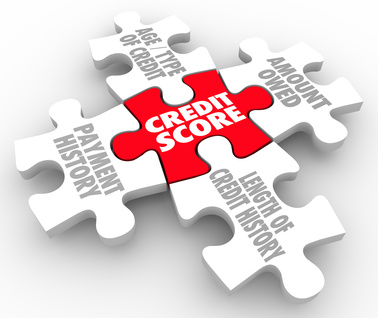
This is a common question for many consumers seeking a loan these days. Consumers have access to hundreds of sources online for checking their credit, from identity protection services to the credit bureaus themselves. Yet all of these scores are higher than a mortgage score by an average of 50 points. This is because all mortgage lenders use Fair Isaac (FICO) for their scoring algorithms. FICO has created 54 different algorithms for calculating credit scores for hundreds of different industries. Only 8 of those algorithms have been approved for mortgages by Fannie Mae and Freddie Mac. However, these algorithms are very expensive to use and not worth that expense for companies that are not actually looking to extend credit with the scores they provide. Beyond online scores, many other industries use different, non-mortgage FICO scoring algorithms or non-FICO algorithms such as the Vantage scoring model. Much of the online scoring is based on the company’s own internally generated algorithms that mimic the FICO scoring algorithms as much as they are able. Many scoring models do not have scores that range from 300 to 850. The Vantage model ranges from 500 to 999.
The scores from an auto lender or credit card company use an algorithm that satisfies their own risk management needs at a price point that is acceptable and competitive for their business model. Online companies offering scores are not actually extending a credit offer, nor will any lender accept the scores generated from any other system. It has been theorized that the online scores may be artificially inflated to intentionally be higher than mortgage scores with the hopes the customer will believe signing up with their service has improved their score. This may lead to many referrals from those clients based on that tainted score. While this is not possible to prove conclusively that the online scores are intentionally inflated, it is conspicuous that the online scores are always higher than a real mortgage score and not lower than the mortgage score.
What about scores bought from the credit bureaus themselves? The bureaus are only the store house of credit data and do NOT actually apply FICO scoring algorithms. Their scores are also not what your loan officer will pull for the same reasons detailed above. The trade lines are correct information, but the scores that calculate are not.
So which score is right? What most people believe to be their “real” score is a mortgage algorithm score. If a car dealer is using the Vantage scoring model and pulls an 803, then that score is right. It is right for them and for their approved risk management requirements for extending credit. There is no “correct” or “real” single score.
Monitoring your scores with an online service is an excellent practice. It is not the score the services shows that needs to be monitored as much as the trade lines that the score is derived from. My recommendation is to monitor your credit periodically. The score isn’t real, but you can use it as a bench mark. If it was showing 740 and now shows 632, then that is the warning to look deeper into what is happening in the trade lines (the account information). Just be aware the online score is usually an average of 50 points high. As long as you are aware of it, it won’t be as nasty of a shock when a real mortgage score comes in lower.




